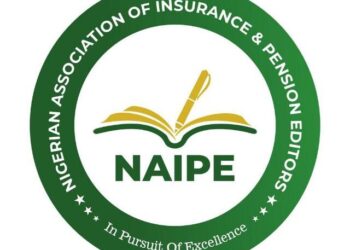By BISI OLADAPO
Ismaila Idris, a clerk working with a telecommunication outfit in Victoria Island, Lagos, was rushing to his office the morning of that ill-fated day, precisely a year ago. He was late for work. On getting to Onipanu Bus Stop, along Ikorodu Road, where he had to board the bus going to Lagos Island, he decided to cross the ever-busy expressway in order to beat time.
As he dashed across the road, he was knocked down by a fast-moving vehicle whose driver did not stop. Idris gave up the ghost while being taken to nearby Ortopaedic Hospital, Igbobi. His family was left to bear the burial expenses and the agony of his loss.
This pathetic story is a daily occurrence in Nigeria where victims of road accidents are rarely compensated. However, such victims have cause to smile now that Service Compact with all Nigerians, SERVICOM, a social contract between the federal government and the public, has introduced One Stop Claim and Resource Centre, OSCAR to ensure victims or their families are compensated.
Worried about the deteriorating state of safety on the roads, the erstwhile administration of Olusegun Obasanjo introduced OSCAR as a means to improve acess to compensation, change perceptions of motor insurance, reduce uninsured driving and promote good practice in the insurance industry.
Ad’Obe Obe, national coordinator of SERVICOM, told the magazine that the establishment of a one-stop claims shop would boost safe travel in the country. Describing it as a basic right of the people, he lamented that the risk of road accidents is high in the country which insurance companies rarely pay. He explains that “the road safety pilot is one of the pilots chosen by the SERVICOM office to demonstrate how service delivery can be improved. The pilot was developed out of safety needs for road users in the short time and also to increase investment in road safety”.
Highlighting OSCAR’s mode of operation, Obe says: “When victims come to us after reporting crash to police, OSCAR will explain compensation claim process to him or her and, if victims want, OSCAR can send for all necessary documents needed for the claim”. However, “if victims prefer to do it alone, they can always come back to OSACR at any time for advice and assistance”, he adds. Already put in place are claims/ helpline offices which will ensure timely release of key documents for claims, prompt treatment of victims and tackle uninsured driving. Under the project, training would be provided for enforcement authorities and a review of the insurance and road safety policies would be carried out. Furthermore, a SERVICOM service charter to be used by the insurance industry in dealing with motor claims will be developed.
The development of the SERVICOM road safety pilot was mainly fueled by the worrisome level of road carnage in the country. Despite the fact that most deaths and accidents on the roads are not reported, 8,672 people were said to have lost their lives to road accidents in Nigeria in 2003 while another 28,215 people sustained various degrees of injuries within the period. In the Federal Capital Territory, Abuja, alone, available data show that 173 people lost their lives to road accidents in 2004 while another 266 sustained injuries within the same period. In Lagos State, 865 people lost their lives to road accidents last year.
Statistics from the Federal Road Safety Commission, FRSC, estimated that a total of 4,955 people lost their lives to road accidents in the country in 2006. Another 17,390 were injured within the same period in road accidents.
“With the introduction of OSCAR, it is believed that there will be more safety on our roads. Road users will be forced to drive with more care now if they know that their victims must get compensation”, says Biyi Solaja, a motorist.
“Road traffic clashes have plagued Nigeria for over 30 years following heavy industrialization and social development. “Insurers have a key role to play in improving road safety by concentrating their role in shaping road safety policy, financing road safety interventions, providing better information on road crashes and promoting research on road safety and emerging good practice”, says Mariam Masha of Arrive Road Safety Initiative, AARSI.
The Insurance Act 2003 acknowledges the existence of uninsured drivers and has made provisions to address victims of such accidents. Section 78(1) of the Act established the security and development fund. It is meant for payment of claims against a registered insurer where it remains unpaid due to insolvency, compensation of innocent individual third parties for permanent disability or death by unknown or unidentified drivers.
The commission is expected to administer the fund through the Motor Accident Victims Insurance Compensation Scheme, MAVICS, meant only for victims of hit and run drivers. The objective of MAVICS is to assist families of innocent individual third parties killed by unidentified drivers or uninsured vehicle. Claims are to be made within 30 days from date of the accident. Scale of benefits is drawn from a minimum of N25, 000 for injury to a maximum of N50, 000 for death. But this scheme is yet to take off four years since the Act was signed into law.
Industry observers are worried that the goals of OSCAR may not be achieved if the National Insurance Commission, NAICOM, fails to launch the scheme as well as re-launch the controversial Vehicle Insurance Sticker, VISER, meant to curb fake motor vehicle insurance certificates. Also, for OSCAR to work, stakeholders like the FRSC, Nigerian Police, Vehicle Inspection Officers and the judiciary (mobile courts) should be involved in the operation.
“Offenders should be prosecuted on the spot by the mobile courts”, says Olakunle Sule, a policyholder.
According to an assistant director at NAICOM, a list of all registered insurance companies will be circulated to these organizations and there will be also be periodic publishing of registered brokerage firms in the newspapers so as to curb the unpatriotic activities going on at motor vehicle licensing offices, which have been identified as the hub of the issuance of fake motor insurance certificates.
In the light of this, Austin Obaedo, deputy of commissioner of police, Lagos State Police Command, agrees that “the development of information technology that could enable law enforcement agents to confirm the authenticity or otherwise of motor certificates presented by motorists would not be a bad idea”. How effective this will work however hinges on the efficiency of NAICOM, SERVICOM and other stakeholders involved.
















